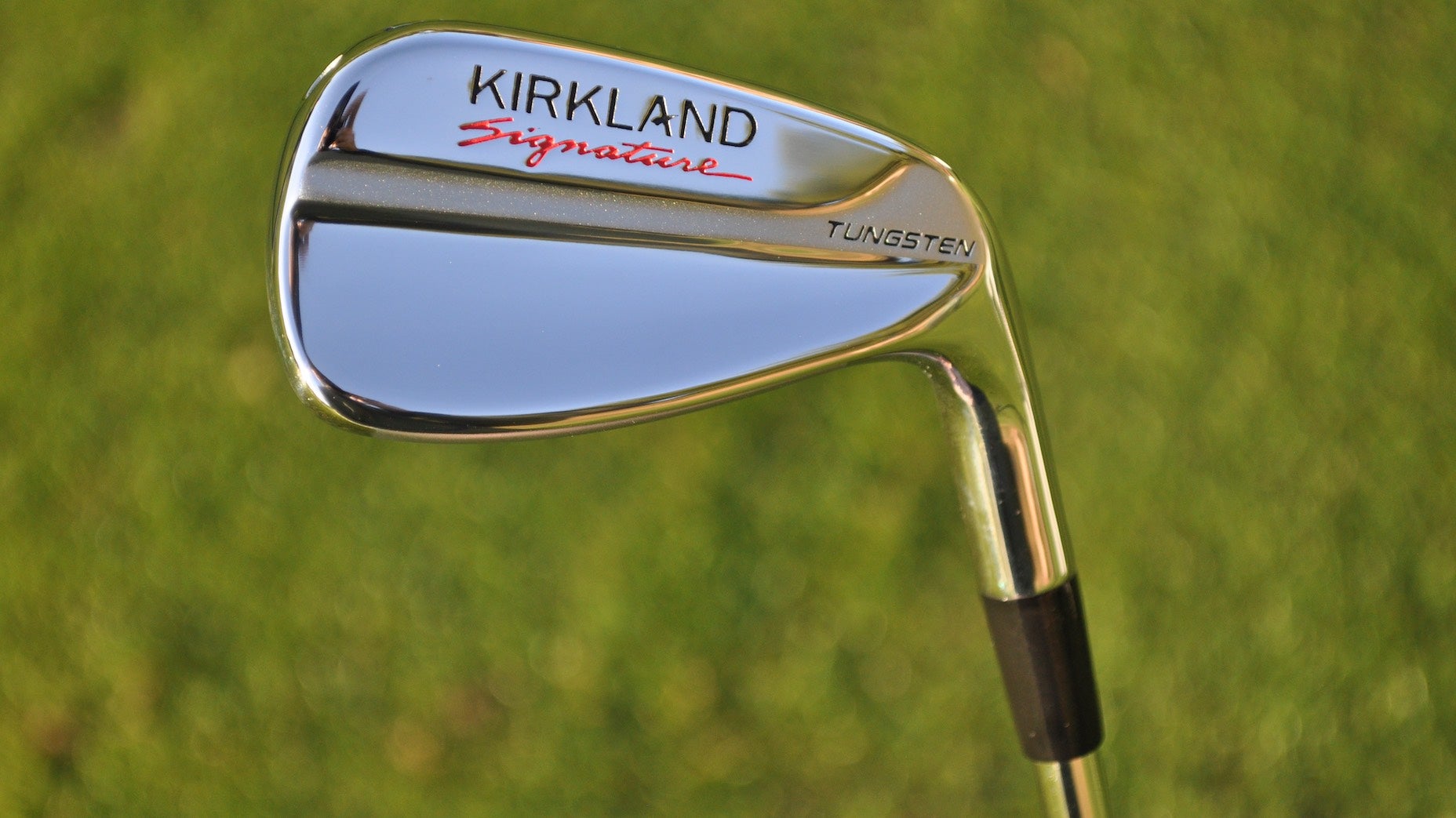For gearheads in the know, the recent release of Costco’s Kirkland Signature irons was highly anticipated. Best known for its $1.50 hot dogs and bulk goods that could feed a small army, the global retailer has continued to make inroads in the golf-equipment industry with strategic products — golf balls, putters and wedges — aimed at golfers on a budget.
Costco’s competitive pricing has led golfers in recent years to wonder about the quality of its tech — especially with the new Kirkland Signature forged irons coming in at $499, and adjustable drivers entering the space at only $199.
For our latest round of ClubTest robotic testing with Golf Laboratories’ swing robot, we put the Kirkland Signature irons to the test against all of the newest products for 2024. While we can’t mention the other 2024 brands and models by name — due to media embargoes — we can tell you how they stack up versus the newcomer.
(Note: All 7-irons were tested on the swing robot at 80 mph using the same attack angle for an apples-to-apples comparison. Three points on the face — center, toe and heel — were analyzed to determine distance loss and changes to launch and spin on off-center strikes.)
It’s a cheeseburger
I’ve used the term “cheeseburger” in the past to describe a club that falls right in the middle of the bell curve. When looking at the launch angle and spin rate of Costco’s Kirkland Signature irons, it’s most definitely a cheeseburger.
The average launch (18.8 degrees) and spin rate (5,764 RPMs) landed the iron right in the middle of the pack, which means it doesn’t favor someone who launches or spins the ball too high or low.
With plenty of game-improvement and players-distance irons near the Kirkland on the launch and spin charts, it’s safe to say the iron benefits a wide range of player types.
Off-speed pitch
Taking the sub-$500 price tag into account, Kirkland held its own in the ball speed battle. On center strikes, the ball speed (111.6 mph) was closer to the bottom than the middle of the pack. To put that number into perspective, several irons boasting similar performance characteristics topped 116 mph. But when you drop down to the middle of the pack, the average is around 114 mph. So we’re talking a difference of 7-8 yards on the best strikes.
But what about mishits? On 3/4-inch toe and heel strikes, the Kirkland lost 11.3 yards on toe misses and 10 yards on heel misses. The tight delta means the Kirklands don’t favor a golfer who misses it in one specific location. In fact, the 1.3-yard delta between heel and toe misses was the tightest we saw during robotic testing.
Some heel and toe deltas from competitors were upward of 11 yards on similar game-improvement and players-distance models. The Kirklands don’t retain ball speed exceptionally well in one location, but they won’t hurt you all that much, either. It’s further confirmation that the addition of tungsten in the head and a weight screw in the toe isn’t just for show.
Carrying cost
Taking the ball speed on geometric center strikes into account, Kirkland wound up averaging a carry distance of 155.4 yards. That’s 15 yards shorter than the longest iron we tested, and just over 6 yards longer than the shortest carry distance recorded.
That said, the irons sitting below Kirkland on the carry distance chart are better-player cavity-back models and blades with weaker lofts. It’s fair to say Kirkland is the shortest players-distance/game-improvement model that went through our robotic testing.
Does that matter to someone who’s plunking down $499 for a set of irons at Costco? That’s ultimately up to the golfer making the purchasing decision.
For the moment, Costco’s Kirkland Signature irons remain sold out and are currently going for $750-$900 on the secondary market, making them a similar buy to the other brands in the marketplace.
Want to overhaul your bag for 2024? Find a fitting location near you at True Spec Golf.
